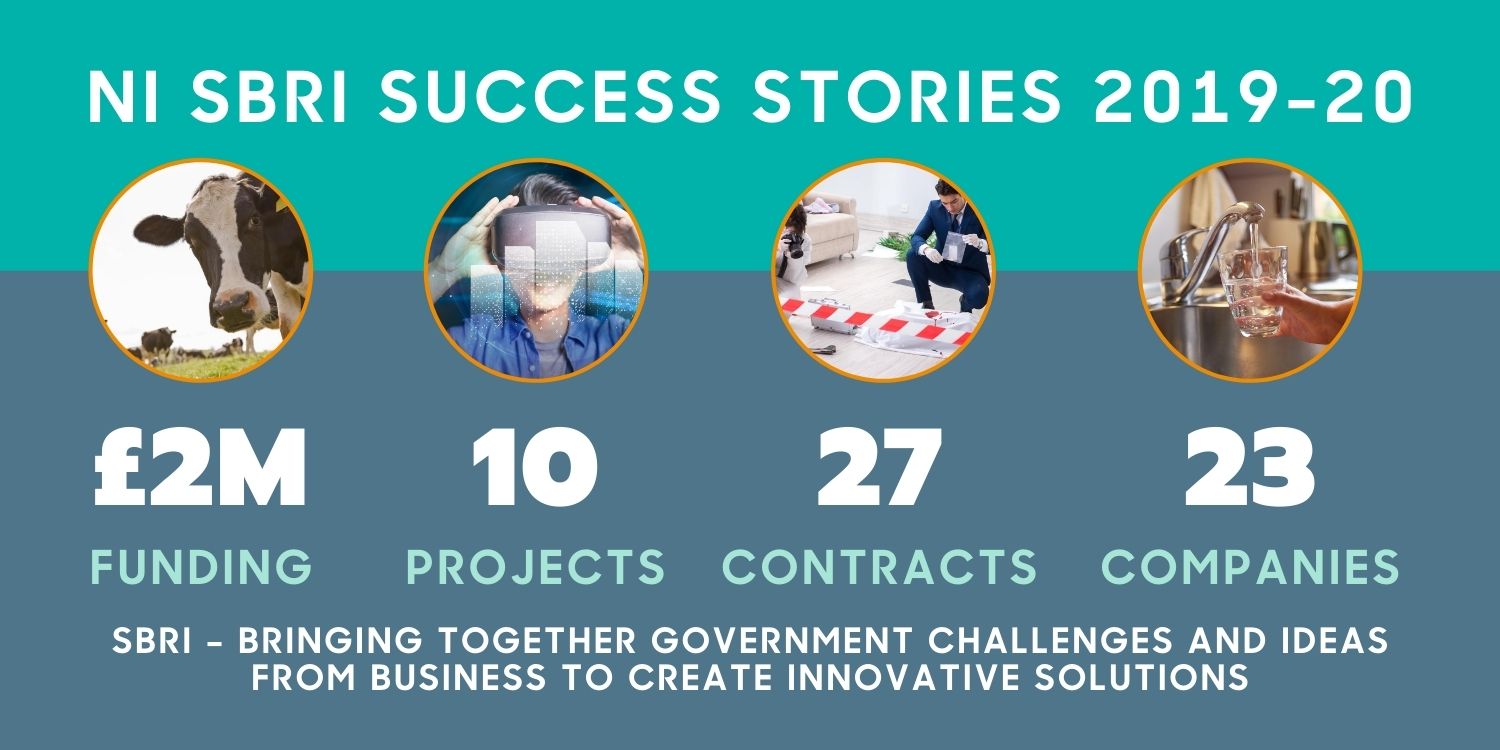The SBRI programme has been running in Northern Ireland for several years now, but this year the programme has expanded significantly, providing support of £2m to three projects in Phase 3 and seven new Phase 1 projects.
A total of 23 companies and organisations were awarded contracts to work on the 10 SBRI projects over 27 contracts, with the three Phase 3 projects involving extended trials, and the remaining 7 being new proof of concept projects.
Examples of projects this year included:
- Education – use of immersive technology to improve outcomes for pupils with Autistic Spectrum Disorders and the development of smart school bus solutions.
- Agri – digital detection of the presence and movement of cattle and sheep grazing outdoors within Northern Ireland
- Water – use of energy storage technologies within NI Water to reduce use and cost and improve resilience and improving potable water treatment processes through AI and machine learning.
- Forensics- rapid visualisation and identification of body fluids on a range of substrates within a forensic science environment
- Roads – The use of emerging technologies to deliver a predictive analysis tool for highway maintenance
This year an average of 8 companies bid for each project, with between 2 and 4 companies being successful on each project. Individual contracts ranged from £30-90k. Contracts are awarded with a focus on innovation and commercial potential, rather than price.
Of the successful companies, seven are NI based and 9 are micro/SMEs and/or new start-ups. Many of these organisations are also collaborating with academic institutions (including QUB), local NI charities or other SMEs to deliver their solutions.
As one SBRI supplier said, “We are now involved in a new sector and are confident we can grow a thriving business by building upon the work completed in this SBRI competition – we are very excited to expand out our PoC and take it to the market – this wouldn’t have been possible without the SBRI scheme”
Another supplier cited the opportunities for growth that SBRI funding can bring, saying: “This project for our company was a game change event – we were a small start-up, now we are a company employing 20 people”
SBRI projects usually have several suppliers, each working independently, but all delivered in conjunction with the challenge owner /department to develop a solution which meets their needs. This may involve data analytics, process re-engineering or development and testing of new products.
Any organisation (small business, charity, academic institution etc) can bid to work on an SBRI project, and all are advertised via etendersNI and promoted on the Matrix website, with free information sessions providing further details of the challenge and bid process.

